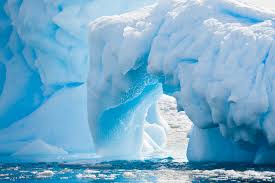I asked Lushman, who had done several combat tours in Afghanistan, if he thought a new Cold War was coming to the north. He laughed.
我问卢什曼,如果他认为一场新的冷战将在北方开始,那么是谁在阿富汗进行了那么多次的对抗战争。他笑了。
"Man, look at this." He spread his arms wide, taking in the empty tundra, the rangers, the paper Russians. "What would anyone do up here? Tanks driving around, soldiers, planes?" He turned to Atqittuq. "Whaddya say, Marv? You ready to fight the Russians?" Atqittuq grinned up from his notebook. "Too much hassle."
“伙计,看看这儿。”他张开双臂,把空无一人的冻原、士兵还有纸做的俄罗斯人都拢在自己的双臂之内。“有谁会在这里做什么?用坦克、士兵,还是飞机?”他转向阿提库。“你觉得呢,马尔文?你准备好去打俄国佬了吗?”阿提库笑起来。“太麻烦了。”

"From a military standpoint, it doesn't make sense, eh?" Lushman said. "You've seen how much time we spend out here just doing basic shit. You've seen how often our stuff breaks down, how much work it takes just to survive. Ain't no war comin' up here."
“从军事角度来说,这说不通,不是吗?”卢什曼说。“我们在这里花了多长时间做这些基本的事,你已经见识过了。你也看到我们的东西老是坏,为了生存我们花了老大力气。这里不会发生战争的。”
The Canadian Rangers had been created during the first Cold War, when military planners, worried about ballistic missiles and the space race, had looked at the Arctic and seen a vulnerable back door. But the rangers themselves were never intended to battle invading armies. Even now, the eyes and ears of the north are far more likely to watch for passing ships: the Chinese icebreakers, cargo vessels, and cruise ships that are expected to appear in ever greater numbers as ice disappears.
加拿大骑兵是第一次冷战后才建立的,当军事家担忧弹道导弹和太空竞争的时候,回头看一眼北极,却发现一个脆弱的后门。但骑兵们自己从没想过去打入侵的军队。甚至是现在,他们的眼睛和耳朵更不可能是用来盯着那些过往的船只的:中国的破冰船、货船,还有随着冰川消失而出现的越来越多的游船。













